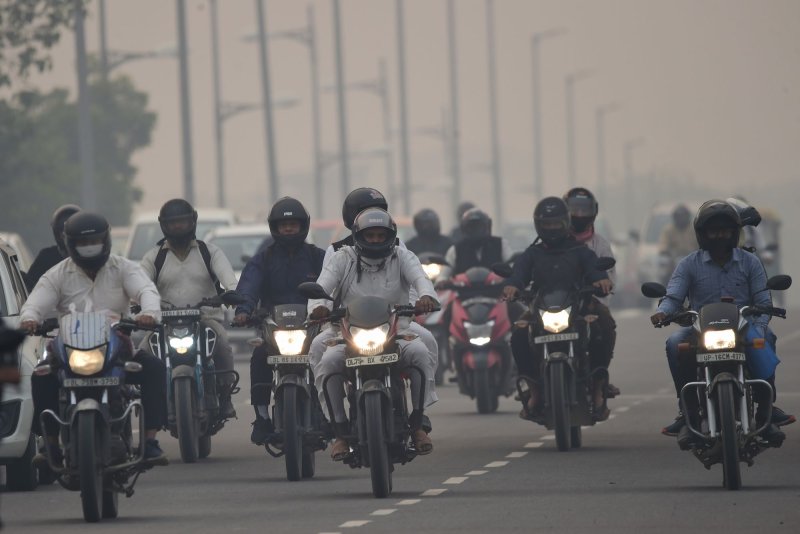Researchers in Spain and Germany found that the COVID-19 vaccines were less effective for people exposed to consistent air pollution. File Photo by Abhishek/UPI |
License Photo
April 5 (UPI) -- People exposed to air pollution at higher levels before the COVID-19 pandemic experienced lower antibody responses from vaccines, making them more vulnerable, according to a new Spanish and Germany study.
The study, led by the Barcelona Institute for GlobalHealth, or ISGlobal, in collaboration with the Germans Trias i Pujol Research Institute, or IGTP, was published Wednesday in the scientific journal Environmental Health Perspectives.
The researchers analyzed data from 927 participants ages 40 to 65 who answered questionnaires and gave blood samples in the summer of 2020 right after the first lockdown.
In the spring of 2021, after participants received two doses of the COVID-19 vaccines made by AstraZeneca, Pfizer or Moderna, the research team measured antibodies to five viral antigens. Exposure to fine particulate matter, or PM2.5, black carbon, or BC, nitrogen dioxide, NO2, and ozone, O3, was estimated for each participant based on his or her address before the pandemic.
The results from the examination showed that in uninfected individuals, pre-pandemic exposure to the tested pollutant was associated with a 5% to 10% reduction in vaccine-induced spike antibodies. They said the decrease in efficacy was seen through all three vaccines.
"Air pollution can induce chronic inflammation, which has been associated with a negative effect on vaccine efficacy," said Carlota Dobaño, co-senior author of the study, together with Cathryn Tonne. "Our findings are consistent with evidence that persistent organic pollutants reduce vaccine responses in children."
Air pollution has been associated with a wide range of negative health issues, including lung cancer, cardiovascular and respiratory disease, and diabetes.
"Air pollutants have been shown to affect immune responses," ISGlobal researcher Manolis Kogevinas said. "So, in this study we wished to determine whether air pollution also affects antibody responses to COVID-19 vaccines."
The researchers said those previously infected with COVID-19 had higher vaccine responses, which could explain why the effect of pollutants was only observed in people without prior infection. They said additional investigations should be done on the long-term exposure to air pollution on hybrid immunity.















